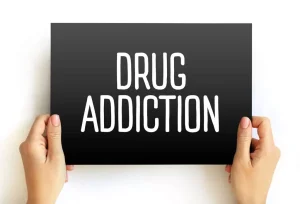
This involves being aware of exit routes, maintaining a safe distance, and seeking assistance from authorities or trained professionals. Before exploring the de-escalation strategies, it’s crucial to understand the importance of managing anger in intoxicated individuals. While anger is an emotional state characterized by displeasure or irritation, aggression involves behavior intended to harm or intimidate others. Hostility, on the other hand, encompasses a more general disposition of antagonism or animosity. Anger, aggression, and hostility seem like common terms that are related to each other. It is important to understand the specific impact of alcohol on these conditions.

Low Regard for Consequences
- The most frequent drug used was marijuana; 30% of the sample reported use of this drug at least once during the six-month baseline period.
- This has been experimentally corroborated using reaction time tasks of moving forward or backward in response to neutral or anger-related words (Mayan & Meiran, 2011).
- Another study that explored the impact of alcohol consumption on facial recognition found that individuals with alcohol use disorder exhibited a bias toward misidentifying emotional facial expressions as hostile or disgusted (Freeman et al., 2018).
- Add in alcohol abuse, and the multitude of possible social, emotional, physical, financial, and behavioral problems related to alcohol addiction, and the risk factors and potential for negative side effects go up exponentially.
According to research compiled by the National Institute on Drug Abuse, alcohol use is a considerable contributing factor to sexual assault. Similarly, in nearly 40% of violent incidents, surveyed individuals from the United Kingdom said they believed their perpetrator was under the influence of alcohol. While drinking alcohol isn’t the sole reason for assault, it plays a substantial role in whether someone commits a violent crime. Unfortunately, feeling aggressive from alcohol can stem from more than one variable that’s beyond your control.
- It can include breaking things and attacking other people, as well as shouting and cursing.
- We can create an environment of emotional well-being and resilience by promoting awareness, exploring healthier coping strategies, and fostering support networks.
- This not only helps to ease the tension of a tough situation, it allows you to catch your breath, organize your thoughts, and gain your composure.
- In some cases, you can’t change an angry drunk, and you need to make the decision that’s right for you and other members of the household, especially children.
- Scheduling an appointment with a professional who specializes in anger management may be more beneficial than participating in group therapy if you have social anxiety.
- It is therefore important that psychological and medicinal treatments be considered when helping people deal with anger management issues.
2 Outcomes of AA Facilitation Treatment
Alcohol effects the prefrontal cortex of the brain, the region that moderates things like decision-making. What this means is that people whose personalities make them naturally quicker to become angry than others are even more likely to lose control under the influence of alcohol. There is a clear link between alcohol consumption and increased aggression levels. However, it’s essential to recognize that not all individuals who consume alcohol will exhibit aggressive behavior.
Gender Differences in Binge Drinking, Alcohol-Induced Aggression, and Violence
- When alcohol impairs this area, a person may be more likely to behave in a way they wouldn’t while sober, including getting confrontational (2).
- In an experiment conducted by Giancola and Zeichner (1995), 128 participants (64 males and 64 females) performed a task where they gave an electric shock to the fictional opponents, which included both the genders.
All treatment sessions included a breath test to ensure that participants had .000 BAC; if not, the session was rescheduled. Sessions began with reviews of cravings, high-risk situations, and any alcohol consumption between each session. There was a brief mention of AA attendance and coverage of drink refusal skills and relapse prevention. Based on the content of treatment protocols, anger regulation material comprised approximately 0.4% of the AAF condition and 64.2% of the AM condition. AA-related material comprised approximately 45.0% of the AAF condition and 5.4% of the AM condition.
Co-Occurring Disorders

The tendency to avoid looking ahead and assessing consequences for one’s actions is a risk factor for aggressive behavior while drinking. That may sound obvious, and it’s a theory backed by a small, interesting 2012 study from Ohio State University (9). Plus, alcohol-related rage and aggression are tied to intimate partner violence, verbal and physical abuse, sexual assault, violent crimes, verbal and physical altercations, and more (1). Depending on the frequency of your use, you may need to discuss alcohol tapering strategies with your doctor. Heavy drinkers can experience severe and sometimes life threatening symptoms when reducing alcohol intake, so it’s important to have medical support.
Anger Management And Alcohol Addiction
Future research should incorporate stringent treatment fidelity methodology in order to document adherence to protocol. There’s no better way to put it — properly addressing alcohol-fueled aggression is crucial for your well-being and relationships. alcoholic rage syndrome By seeking recovery for problems with alcohol and anger, you can work toward a more positive life. In addition to receiving guidance from experienced professionals, support groups are effective for building relationships.

Time after treatment (months 1 through 6) was modeled as a continuous variable. Continue reading to learn more about the link between alcohol and anger, including which risk factors exist, how alcohol-related aggression can be dangerous and more. By understanding how alcohol abuse influences your mood, you can learn to make positive choices instead of ones you may regret. Becoming https://ecosoberhouse.com/ angry or irritable when you drink is a relatively common experience — an often-cited body of research by the World Health Organization notes that aggression has a closer link to alcohol than any other kind of psychoactive drug. Clients can learn healthy stress management and coping skills to diffuse anger and other negative thoughts in group and individual therapy sessions.
- Drinking alcohol releases norepinephrine into the brain, a stimulant that can decrease our inhibitions while increasing our impulsivity.
- While it is always better to discourage the use of alcohol for people who have this tendency, some things can be done to manage the situation.
- Thus, assessing the level of risk is paramount to ensure personal safety and promote a constructive resolution.
- One such study included 136 men with a history of intimate partner violence (IPV) (Estruch, 2017).
- Interestingly, those in the control group tended to misidentify expressions as happy.
- It also noted that sexual aggression was higher with alcohol, even in men with low trait anger and reasonable anger management skills.







